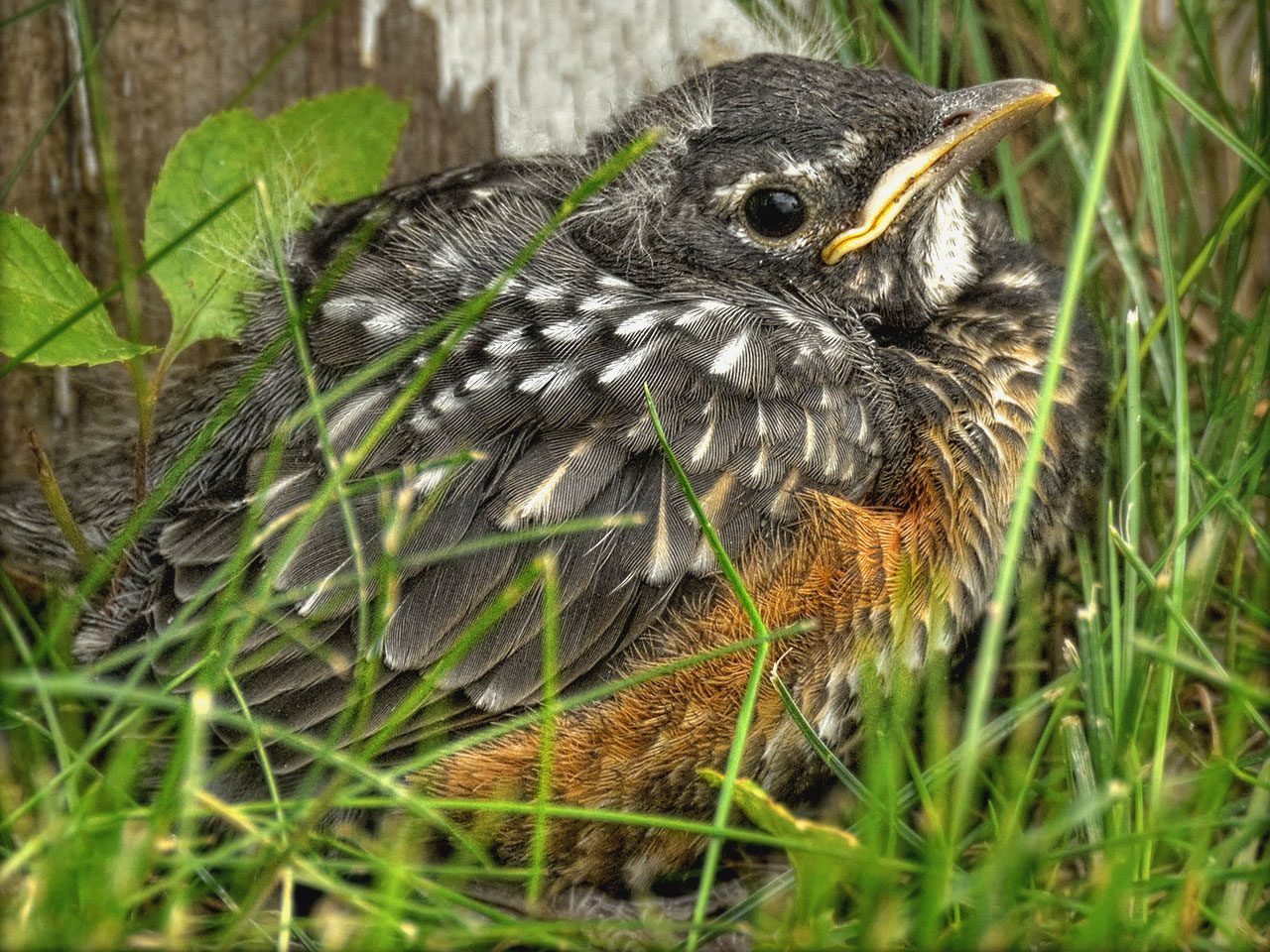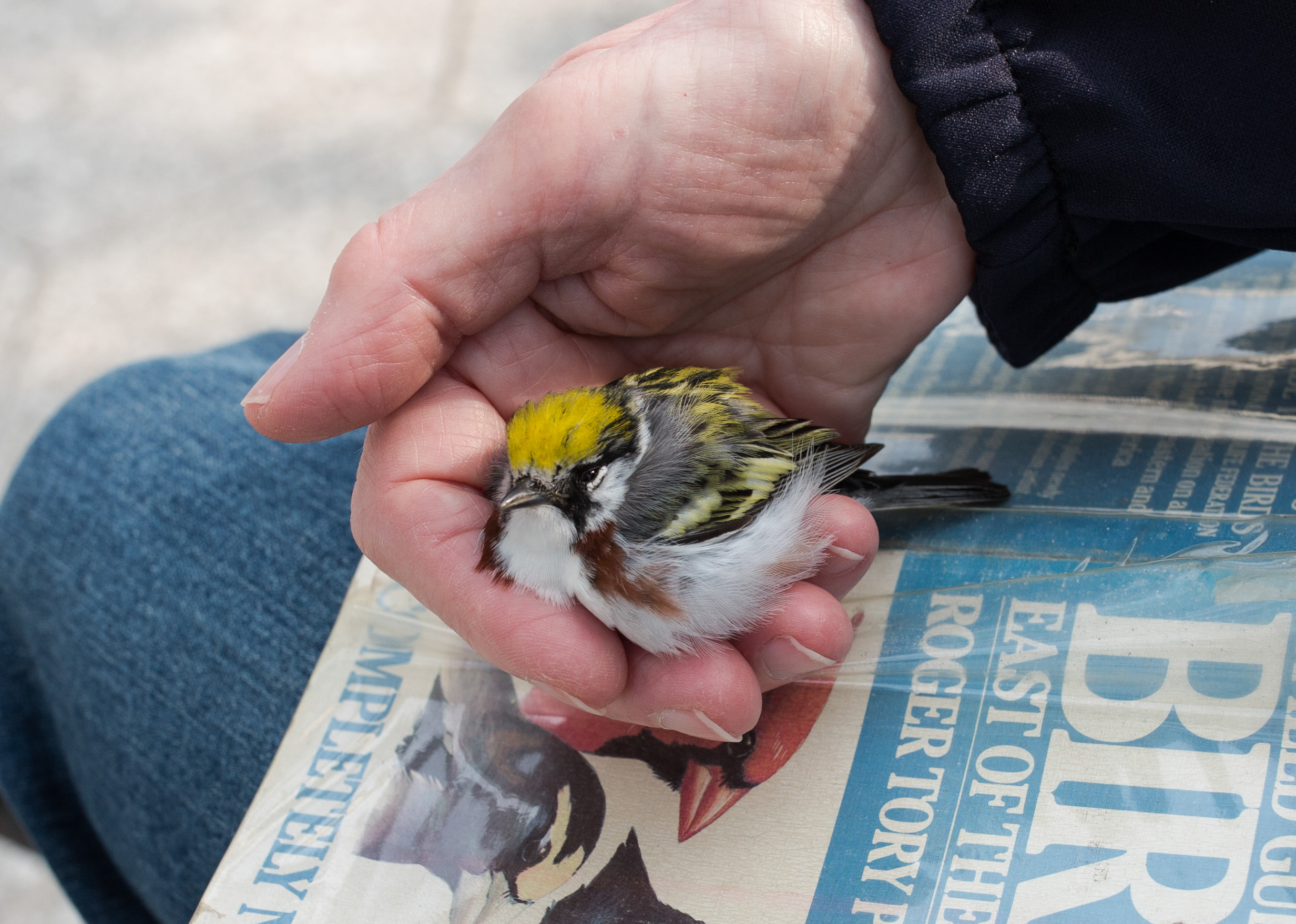Wild Bird Rehabilitation
Baby American Robins in the Nest by Katie Chapin
When Wild Birds Need Our Help
Throughout the year, wild birds may be injured in collisions with windows or vehicles, fights with domestic pets, caught in fishing line or other human-made debris. In spring, you may find a baby bird on the ground, seemingly in need of assistance. What can you do to help? Read on for advice and resources.
NOTE: Bedford Audubon is not a certified wild bird rehabilitator and can NOT assist with the rescue, retrieval or rehabilitation of birds. Click the link below to locate a wild bird rehabilitator near you.

What to do if you find a baby bird
Your first step is to determine if it is a hatchling, nestling or fledgling.
A hatchling is 0-3 days old, hasn’t opened its eyes, and may have wisps of down on its body. It’s not ready to leave the nest. If you find a bird at this young age, look for the nest and carefully return the hatchling to the nest.*
A nestling is usually 3-13 days old, with eyes are open, and its wing feathers may look like tubes because they’ve yet to break through their protective sheaths. It’s also not ready to leave the nest. If you find a bird at this young age, look for the nest and carefully return the nestling to the nest.*
*If you cannot find the nest to return the hatchling or nestling to, shelter it from the elements and from any potential predators, including cats and dogs and click link at the bottom of this page to locate a wildlife rehabilitator near you.
A fledgling is typically 13-14 days old or older. This bird is fully feathered. Its wings and tail may be short, and it may not be a great flyer, but it can walk, hop, or flutter. It may appear to be unattended at first, however, the parents are usually close by, observing you and their offspring from a safe distance. If it is not in immediate danger, there is no need to intervene. You can observe the bird at a distance and wait for the parent to return to care for and feed the fledgling.
If you find a baby bird of any age, do not give it milk or other food. Do not attempt to give the bird water. The physiology of a bird’s mouth is VERY detailed and if water goes into the wrong opening, the bird will aspirate and die.
If you have found both parents dead, the young bird is injured, you can’t find the nest, or are absolutely certain that the bird was orphaned, then your best course of action is to bring it to a wildlife rehabilitator. Click link below to locate a wildlife rehabilitator near you.

If you find an injured adult bird
Your first step is to determine if the bird is truly injured and in need of help.
The following are characteristics of an adult bird in need of assistance:
- Lying on its side or sitting motionless on its stomach
- Allowing humans to closely approach
- Attempting but failing to fly
- Bloody or with apparent wounds
- Visible broken legs or drooping wings
- Swollen or closed eyes
If you find an injured bird and you’re positive that it is too injured to survive on its own, shelter it from the elements and from any potential predators, including cats and dogs.
Do not give it milk or other food. If it is hot out, you may leave a very shallow dish of water near the bird. Do not attempt to give the bird water. The physiology of a bird’s mouth is VERY detailed and if water goes into the wrong opening, the bird will aspirate and die.
Make note of its exact location and click link at the bottom of this page to locate a wildlife rehabilitator near you.
When you call a rehabilitator, you may need to leave a voicemail—be sure to include your own name, your location, your cell phone number, as much information about the animal as possible. They may call your back themselves, or put a colleague in touch with you if they’re not able to take the animal you’ve found.
Animal Nation is a non-profit Wildlife Rescue and Rehabilitation Facility, serving our area. They a very reputable source for information and can provide you with the names and numbers of licensed rehabilitators. You can call them directly at (914) 400-6014.
